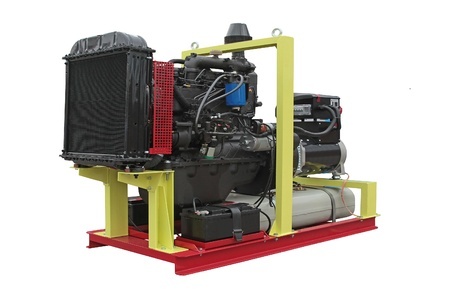 Diesel generators are typically very reliable and can come in handy when there is a power outage and you need to have something powered. They, like any other device or machine, can fail at times though. There are certain things that you can check for and do prophylactically in order to reduce the chances of failure when you most need your generator. Furthermore, keeping up with basic maintenance of your device is important in order to preserve its life (and that is something you likely want to do given the high cost of buying one).
Diesel generators are typically very reliable and can come in handy when there is a power outage and you need to have something powered. They, like any other device or machine, can fail at times though. There are certain things that you can check for and do prophylactically in order to reduce the chances of failure when you most need your generator. Furthermore, keeping up with basic maintenance of your device is important in order to preserve its life (and that is something you likely want to do given the high cost of buying one).
One of the most common reasons why diesel generators fail is because of battery failure. Sulfation buildup like you can see with any batteries is typically the cause here. Battery plates exposed to air will sulfate as sulfur molecules in the battery acid become heavily discharged and start to cover the plates. Try to avoid exposure to the air if possible. Battery cells can also get shorted if the sedimentary trays fill with debris. You can avoid this by replacing them regularly- some suggest that three years is the optimal time for replacement. A less rare issue with the battery may be that cells become open due to overcurrent of the system. If this happens multiple times you may need larger batteries which can support higher cold cranking amps (CCAs). Battery failure may also result from issues with the charger which often happen due to some mistake on the part of a human, often a service person or the operator when the battery was last used. Also check the battery after any use to make sure that everything is functioning properly and that the charger is turned on after service is complete. Maintenance is very important as there are many things that can go with a battery that can be avoided or at least the damage mitigated to a much smaller issue that is less costly. Monitoring charge rates and keeping connections clean and solid are especially critical.
Moving on from the battery, it is important to make sure that your coolant levels are always appropriate. Coolant levels that drop too quickly may be the sign of a leak or some other issue and it should be looked at and repaired. Keep an eye on oil for color changes and pay attention to your coolant alarm if your generator has one. The best way to check your coolant level is to do a full load test with an external load bank as this is the most accurate way to check the cooling system.
Low coolant alarms are often the result of faulty block heaters, but those are very important to keep maintained as well even in warmer climates as it not only helps the engine start in cooler temperatures but serves the vital function of maintaining the cooling system and keeping the cylinder liners expanded. It is the temperature in the block heater that leads to the coolant circulating throughout the system.
The battery, coolant, and block heaters are only part of what you need to keep an eye on if you want your generators to work most of the time and want to improve their longevity. Stay tuned for part two of this post for more!
Image credit: Stepan Popov





